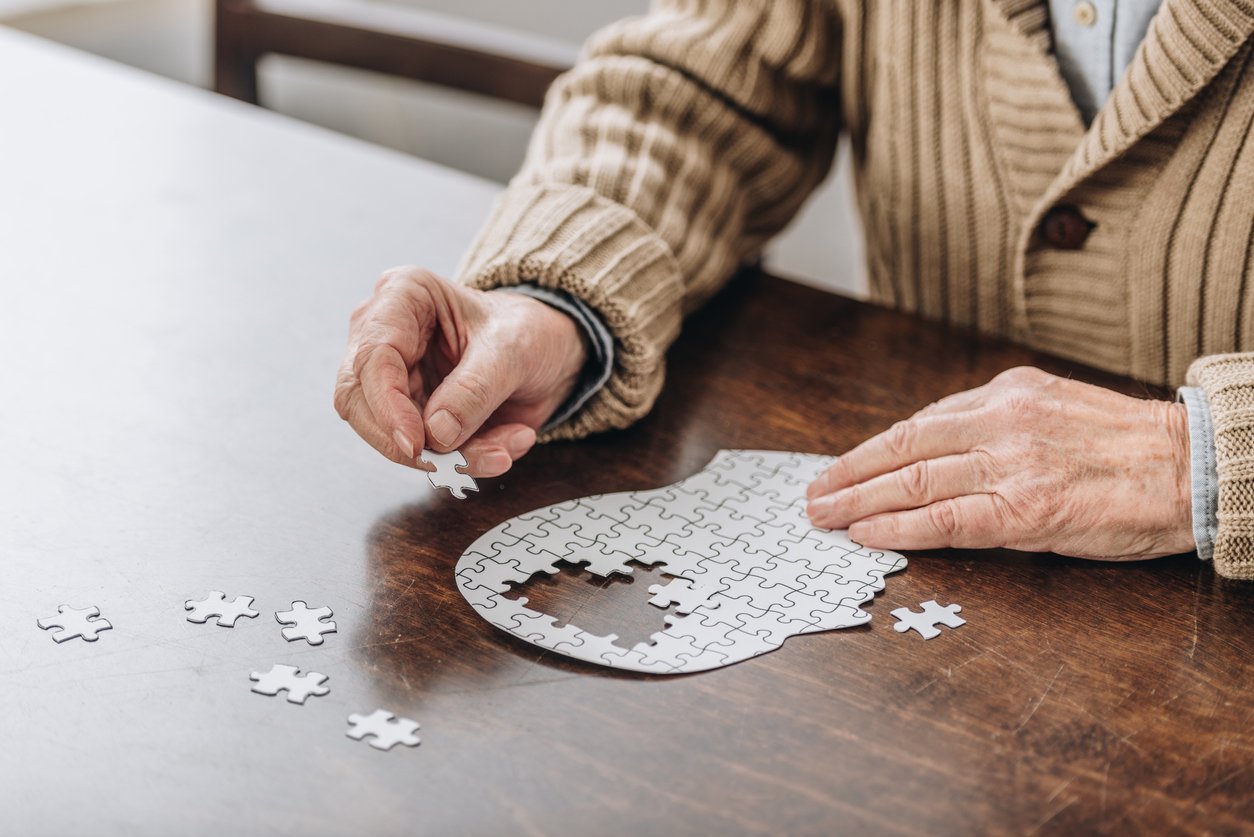The right word is missing and gets stuck ‘on the tip of the tongue’. House keys, glasses and medication are lost here and there. Familiar names and faces get mixed up. Routine appointments, hairdresser's appointments, the time to pick up the grandchild and other small daily tasks and duties are forgotten. And yet, faced with the sum of these circumstantial forgetfulness and their multiplication, we often witness an exercise in denial and the normalisation of symptoms. Signs that indicate nothing more than ‘just’ tiredness, ‘just’ confusion, ‘just’ forgetfulness, ‘just’ distraction. The search for other justifications for the perceived changes. The refusal to face the problem in its clinical dimension and, finally, the search for another name for a diagnosis that ends up imposing itself: Alzheimer's.
It's a long journey that delays the call for help.
Alzheimer's is the disease that condemns you to forgetfulness. But more than the routine forgetfulness that, day by day, takes away functionality and autonomy, Alzheimer's attacks identity and profoundly alters who we are.
In the unstoppable march of the disease, the thread that defines us is lost along the way.
In the wake of disability, interests and motivations, activities, roles, statuses and functions that once framed the personality are lost. The past becomes volatile and events, recent or old, pile up disorganised in a personal history that becomes confused and transfigured.
Not infrequently, those who love each other suddenly become strangers and even hostile. And in an unusual reversal of roles, children and grandchildren become the parents who dictate routines, recipes and rules that are often incomprehensible to the patient. On the other hand, the living spaces themselves can become unrecognisable to the patient. And the home, once a haven, can become a threatening place.
Without the anchor of the past and on the margins of the present due to the growing difficulty of grasping the context, important connections are lost: with oneself, with the environment and with others.
It is in this chaos of disorganised memories and mixed affections that identity is fragmented. And from the self in ruins, the anguished question emerges: My mirror, my mirror, who am I anyway?
In a march against time that comes to steal away an entire existence, we need... time.
Time to integrate the drastic changes. Time to accept the withdrawal from the community, to give up a more active social life, to abandon leisure activities and other work and personal projects. Time to let go of the old roles that had been assumed. Time to manage loss. Time to accept the care of those around you. Time to invent new dynamics and routines within a family that is also changing.
Time also for those who fall ill with the patient and who impose themselves as carers beyond the solitary and secluded spectre of the illness. They, too, are clamouring for time that isn't enough. Time to learn to deal with the patient's feelings and behaviour. Time to accept their personality changes. Time to come to terms with your own emotions and manage feelings of anguish, helplessness, fear, pity, overwhelm, pessimism and guilt.
No-one has died, but this is already a time of mourning. First the confrontation with the fatal evolution of the disease. Then the anticipation of all the losses and the prospect of a life in the future, which is emptying out every day. Mourning the image and the person of yesteryear. And finally, the mourning of the relationship itself and the acceptance of the emotional distance that finally sets in when the patient no longer recognises their relatives and closes in on himself/herself incommunicado.
There is a longing that becomes presence and begins with a long goodbye. Along the way, you lose a mother/father, a spouse, a grandmother/grandfather and all that remains is the memory of what that person was and their history in the history of others. And yet, the desire to hold on to that sick person, in their presence-absent, overshadowed by the fear of a long-announced death.
These are the struggles of mourning. Long and gruelling in its anticipatory journey, mourning is a painful process that mortifies those who watch from the outside, but at the patient's side. Despite the violence of the experience, this process is normal and adaptive. It makes it possible to integrate the reality of an impending loss and prepare to say goodbye; to finalise incomplete situations; to manage emotions; to ensure that nothing is left unsaid or undone.
It is the opportunity to make an unequivocal contribution to alleviating the suffering of the sick person and to exercise the grace of loving above any challenge (Valter Hugo Mãe, My Mother is My Daughter). This is the ultimate opportunity to honour. To be a memory and a standard-bearer for their personal history. To be a mirror and reflect, beyond the illness, the image of the one who will not succumb to oblivion.



